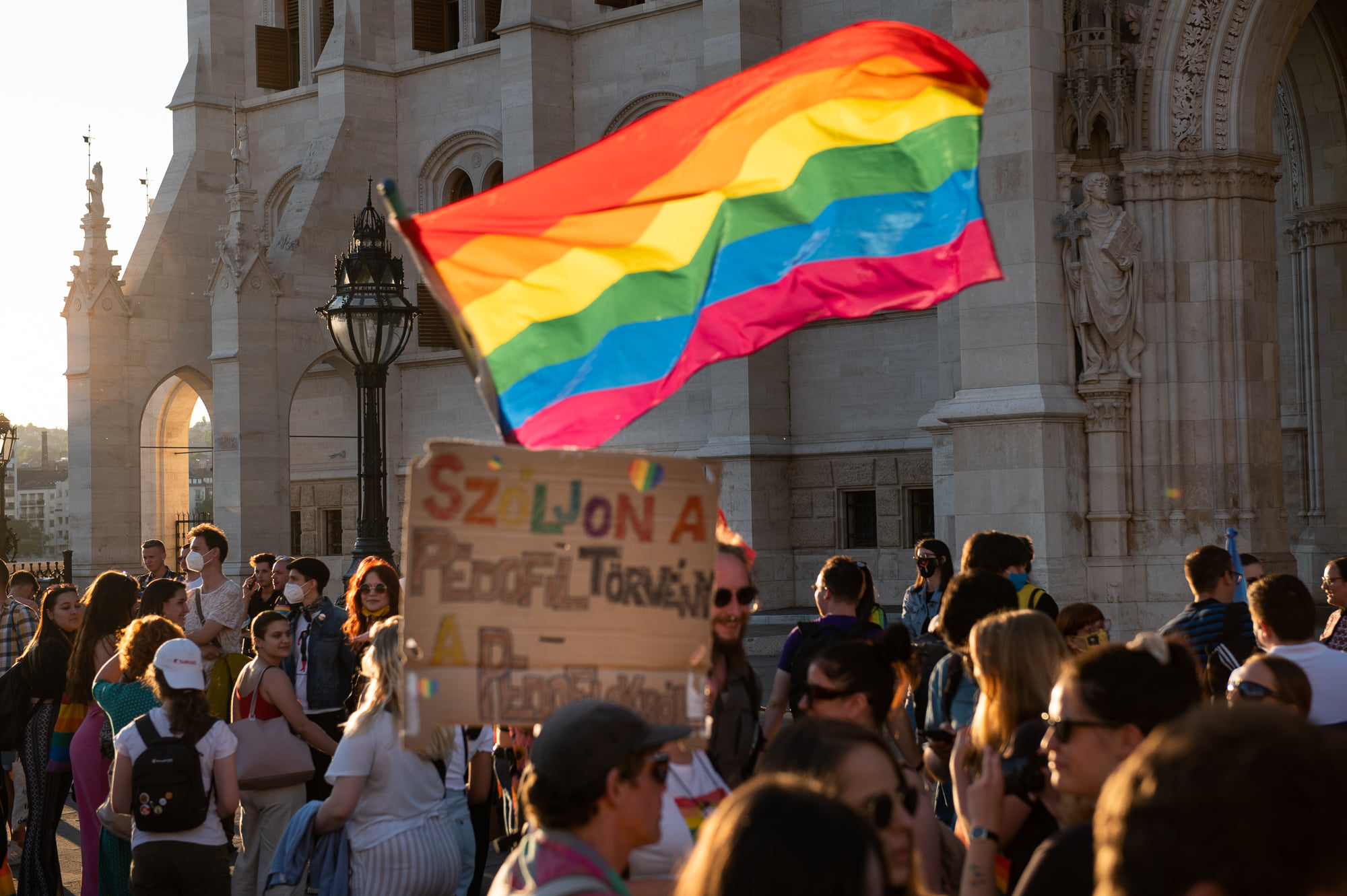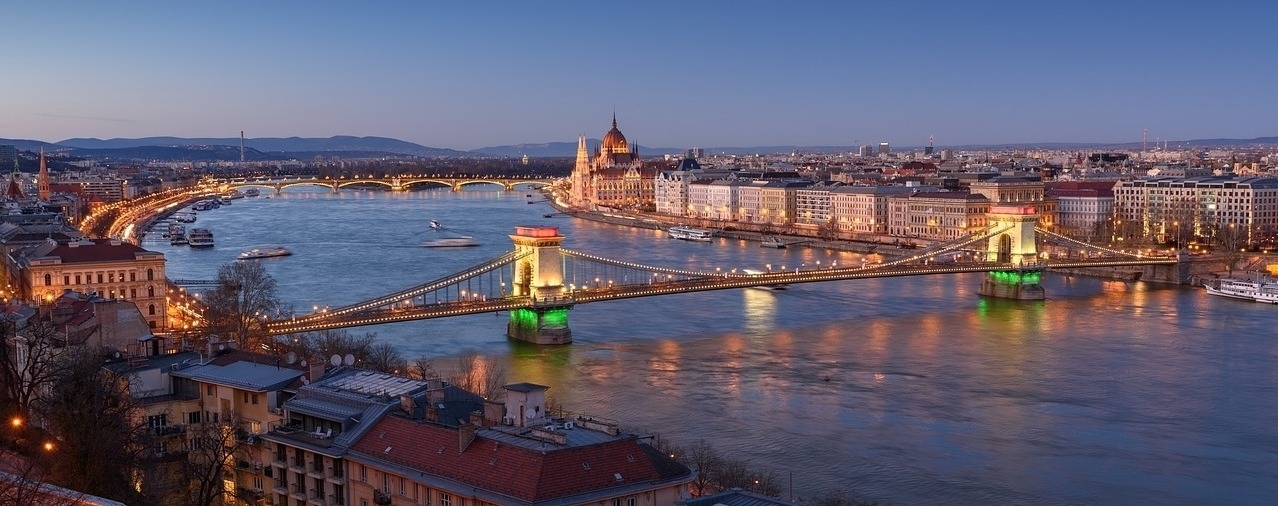Are Hungarians really this discriminative towards their neighbours of ethnicity?
The survey shows who the Hungarians do not want to have as a neighbour.
Despite living in the most enlightened times, racism and antisemitism are still present. Especially when global issues, such as climate change or the coronavirus pandemic, force certain nationalities to leave their homes and find it elsewhere. However, it is not only natural catastrophes that bring these tensions to the surface. Some have been living among us for a very long time but are still not accepted by their neighbours.
Incredibly huge Hitler portrait hung out of the window of a Hungarian house
Medián is Hungary’s leading survey company researching the market and public opinion. They have been searching and measuring the point of view of Hungarians in how rejective they are against different ethnicities and religions. This year’s results show that the majority of those filling out the forms
would reject to live next door to migrants, Roma people, and Arabs, but homosexuals are not far behind either.
Endre Hann, managing director of Medián, told channel ATV that in 2015, when the issue of migrants became a public talk, this group of people immediately came to lead the list, even though many Hungarians had had little to no connection or personal experience with them.
He also mentioned that
Roma and black people are one of the most rejected groups,
which shows that there is still a sort of “traditional dislike” towards people with a darker skin tone. The opinion of Hungarians is fluctuant in the long run; however, during the past two years, the negative feelings towards these ethnicities have somewhat decreased, only to be directed towards homosexuals.
An astonishing two-thirds of the population is against the idea of a Roma moving next door,
while Jewish people are a bit more accepted.
Antisemitism, which is the prejudice and hostility to Jews, has two sides in the country. There is the traditional attitude based on religious views and the fact that many Hungarians (about a quarter of the population) still think that they possess too much power and influence over the country. The strongest and most brutal form of antisemitism is the denial of the Holocaust, which is true to every tenth person of the Hungarian population, added Hann.
If these opinions and sentiments are considered in a complex image, it shows that
36% of the Hungarian population can be regarded as anti-Semitic, either strongly or moderately.
On the other hand, very few of these people act on it.
Hann also added that based on their surveys and research conducted every year, these anti-Semitic feelings increased around 2010. It might have a connection to the joining of the political party Jobbik (far-right) to the Parliament.

Read alsoSurvey: 80% of Hungarians do not want a homosexual PM
Source: ATV.hu, median.hu
please make a donation here
Hot news
PHOTOS: New tourist attraction opens at Lake Balaton: everyone can visit the former factory site
Fidesz submits another package of laws in child protection
Tourists, attention: BudapestGO app launches innovation to make your trip easier
No stopping: Another metropolis to be available directly from Budapest
Orbán cabinet: Joe Biden attacks us because we are pro-peace
Hungarian passengers stranded in Barcelona due to extreme weather



5 Comments
We have lived, for the past (4) four years in Budapest, Hungary, in the same house – under the status of Residence Permit Card Holders.
We extend common courtesy to our Hungarian house neighbours – (12) twelve apartments – in District V – and there response – is same in return to us.
We speak no Hungarian only English – but our “body language” gives them confidence that we are neighbours – they can warm to an trust.
Attitude is Important – expressing friendliness and warmth which in return does make friends rather than enemies.
There are some deniers but in reality al humans are tribal and territorial beings. Hungarians are no exception. Their unique language only exacerbates the existing issues relating to problems arising from the differences caused by religion, ethnicity, social norms, etc. As almost any group, Hungarians welcome anyone who shows a sincere desire to assimilate.
I don’t want to live next door to racist, homophobic, anti Semitic bigots.
I socialise with many Hungarians here in Budapest and their order of dislike seems to be the following: Roma, Ukranians (so called ethnic Hungarians or not) and Romanians (so called ethnic Hungarians or not) and then Jewish people. Homosexuals are barely mentioned other perhaps a quick mention of he or she is gay but said without malice.
The article refers to prejudice in Hungary. It is questionable whether the data is reliable. The article does not mention that Anti-Semitism on rise in the EU and Jewish people are the safest in Hungary. The article did not mention that in 2015, Hungary was invaded by a horde of Arabs and other illegal migrants. The invaders created chaos, left piles of garbage, increased crime and there was no end to their demands. Bad experiences can have lasting effects. Roma and Hungarians were at odd for over a century. The travelling life style of Roma people did not fit. Hopefully, with better education, the two groups will improve their relationship. The Roma people are disliked in the rest of EU. LGBT members are safe in Hungary. There is no discrimination against them. LGBT people have more problem living in other EU countries.
It would make more sense in data was included form other countries. If other countries would have been included,, the data would demonstrated that Hungarian people are great neighbors, actually better neighbors than people in most EU countries.